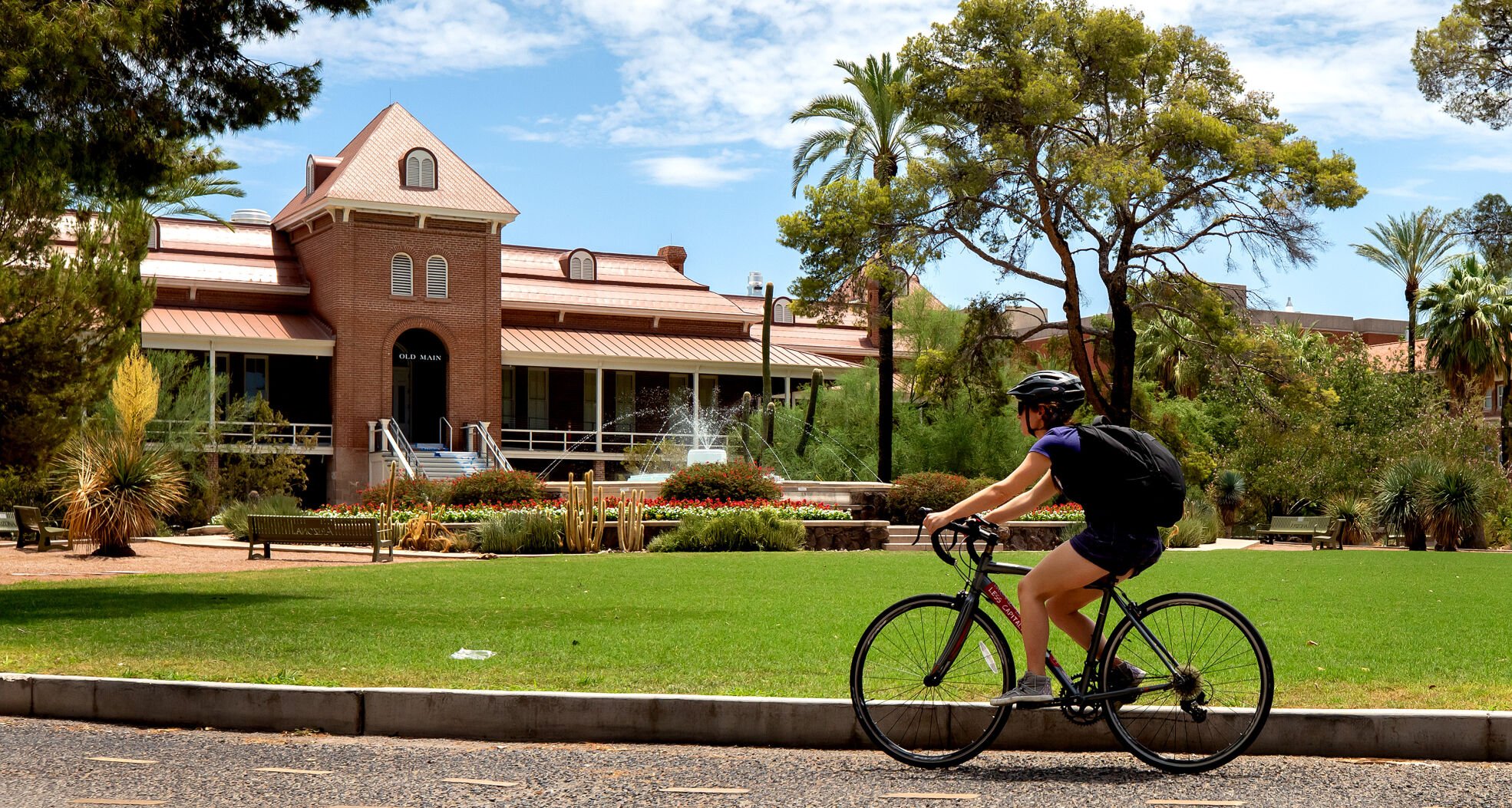The two University of Arizona professors suspended last month for their remarks about the Israel-Hamas war have officially returned to their positions.
College of Education Dean Robert Berry said Friday that professors Rebecca Lopez and Rebecca Zapien are back from their suspensions with pay that were issued last month.
“We reaffirm our commitment to an academic instructional setting that respects all viewpoints and is within the scope and educational purposes of our discipline in terms of materials provided in the classroom,” Berry wrote in a message to faculty, staff and students in the college. “Through our discussions with faculty, staff, students and community members, we are learning and growing as a college.”
However, the United Campus Workers of Arizona union is criticizing the university because for the rest of the semester the department head, not Lopez and Zapien, will teach the class where the comments were made. Berry did not explain the decision.
Lopez and Zapien were suspended after a recording of their class on cultural pluralism for young children was posted on the X (formerly Twitter) account @IsraelWarRoom, a pro-Israel platform with more than 260,000 followers.
Posted in the thread were recordings of Lopez and Zapien speaking about the war. At one point, they conflated Hamas to the Black Panther party in the United States. In another, they shared ways students could boycott Israel. Some students in the class have claimed the clips were edited.
“Part of teaching”
Zapien told the Arizona Daily Star that she didn’t regret what she said in class, despite how “discombobulating” the suspension was for her and her family. She said she got threatening emails and phone calls when the post with the recording, which she said was edited, went viral.
“This is what we do as teachers, this is a part of teaching,” she said Friday. “Engaging in discourse around whatever it is that’s happening in live time outside of the classroom is really important.”
Despite some critics’ beliefs that the College of Education should not be discussing the Israel-Gaza conflict, Zapien stood her ground.
“Truth be told, liberation is something that we talked about in a lot of frameworks in the early childhood program,” she said. “It feels like there’s a clear and defined line as to who that applies to and who it doesn’t.”
Though Lopez and Zapien have been reinstated, the class on cultural pluralism for young children will now be taught by the department head for the last two weeks of the semester.
‘Violation of academic freedom’
United Campus Workers of Arizona says the two professors must return to their classroom.
“It is a violation of academic freedom for the administration to seize a class (against the will of the teacher) unless there is a faculty body that finds some kind of professional misconduct happened and necessitates such extreme action,” said Matthew Abraham, an English professor at the UA and a member of the union. “It silences the faculty member in a very clear way and also removes the professor’s grading authority.”
Zapien said that she was “deeply disappointed” that she and her colleague are still not permitted to return to teaching the class.
“Higher education institutions are supposed to be a place where critical thinking and dialogue is supposed to be had,” she said. “It does feel … punitive for sure.”
Abraham said, “it is also a violation of student rights to hear the professor and to be graded fairly based on their academic work throughout the entire class.”
Removal from teaching with or without a formal suspension “is a major sanction and can only be imposed for harm that is imminent or threatened. It’s a prima facia violation of academic freedom,” he added.
The union has advocated for the professors to retain control of their class, but, according to Abraham, senior administration “has not responded positively” to their demand.
‘This is a huge win’
The students within the College of Education who organized multiple sit-ins to protest the suspension of Lopez and Zapien were cautiously optimistic after Berry’s letter.
“Student organizers still have a lot of work to do but this is a huge win,” the organizers wrote on their Instagram account. “Thank you to everyone who has showed up for us these past (few) weeks.”
Zapien said that it was “inspiring” to see the students rally around her and Lopez.
Though he did not reinstate the professors in their classroom, Berry did announce the beginning of a new teach-in workshop series called “Educational Dialogues,” led by faculty with “pedagogical expertise in responsibly teaching potentially contentious topics while maintaining high academic standards and ensuring accuracy.”
The series, which began Friday, includes a focus on teaching highly sensitive subjects while keeping within the academic standards of the College of Education and the UA, deepening an understanding of academic freedom and providing guidance from faculty in Judaic studies and Middle Eastern and Northern African studies on teaching about the conflict “respectfully, objectively and with strong facilitation skills to engage in conversations with students.”
According to Zapien, the workshops were something she had asked for before she spoke to her class about the conflict.
“I’m hopeful that the talks will be helpful for all of us,” she said. “It feels a little late in the game.”
These workshops follow an open forum hosted by the college for instructors on Nov. 20 that discussed freedom of speech within the context of the classroom.
“Through this series, we will reinforce our values as a community and come out of this challenging moment stronger and better prepared to encourage learning, understanding and community building,” Berry wrote.
Get your morning recap of today's local news and read the full stories here: tucne.ws/morning




